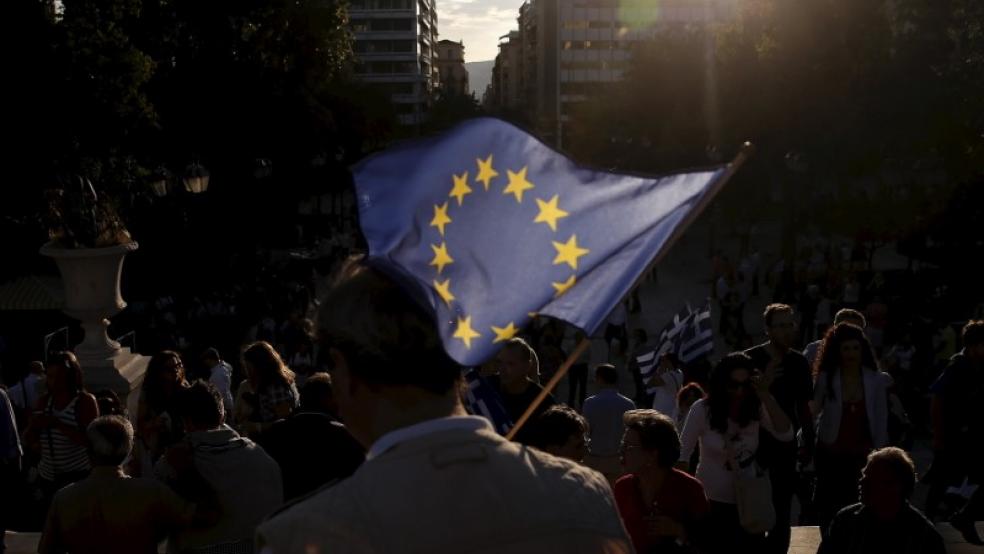MONACO/LONDON (Reuters) - Is Greece a big deal or not? For hedge funds betting in European markets, the answer largely depends on how they make their money.
Greece is entering yet another 'endgame', with politicians and international creditors fighting to avoid a default on Athens' latest debt repayment, the potential imposition of capital controls and maybe even a Greek exit from the euro zone.
A Greek plan to raise taxes and welfare charges has been welcomed by euro zone leaders, but not the hard left in the party of Prime Minister Alexis Tsipras, creating the potential for more turmoil in the coming weeks.
While many mainstream managers have scaled back direct exposure to Greece since its debt troubles began, investors at the GAIM hedge funds conference in Monaco this week ran the gamut of investment positions, from hugging the sidelines in cash to hedging their bets or piling heavily into a one-way punt.
Top activist investor Eric Knight, whose $1.1 billion Knight Vinke fund has agitated for change at a number of the region's top companies, including UBS
and HSBC , said he was holding out for clarity on Greece."Given the uncertainty in the markets because of the Greek situation, I don't feel happy investing at the moment," he said.The situation has also led him to delay the launch of a new fund to September.A number of equity long-short funds, which can bet on prices rising or falling, have been fined recently by the Greek regulator for so-called naked short-selling on Greek banks, a process whereby they strike a bet that stock prices will fall without first borrowing the stock from a shareholder.For most, though, the question is: What impact would a Greek exit have on shares in the region?Some funds focused on mergers and acquisitions have bought into the market betting on a deal, while most equity funds remain positive on the outlook for the region's shares, given the European Central Bank is printing money to boost growth.That hasn't stopped Mark Cook, a partner at Octogone Gestion, hedging his long-only equity book, particularly as he saw the potential for the euro to dip to at least 1.05 against the dollar in the event of further Greek trouble.European equities have been broadly supported since the start of the year because of the ECB. The Euro STOXX 50 <.stoxx50e>, a list of the 50 biggest companies in the euro zone, is up nearly 15 percent year to date.Greek stocks <.atg>, meanwhile, are down 7 percent since the start of the year and many of its debt yields have risen.Most funds invested in by Michele Gesualdi, chief investment officer at Kairos Investment Partners, were avoiding Greek debt and equity markets altogether, he said.Some credit funds still saw value, though.Fabrizio Biondo, chief investment officer at $1 billion Swan Asset Management, said he had invested in both Titan Cement and Hellenic Petroleum as he considered the selloff in their shares overdone."In our opinion Titan is not going to be affected in a significant way, even from a Grexit scenario, because direct exposure to Greece is not relevant. So whenever you have the chance to buy this credit at 8 percent yield on the back of negative Greek headlines, we think there is value there.His broader portfolio had become more defensive over recent weeks, however, with only 30 percent exposure to bonds with longer than 18 months to maturity.COMPLACENTMichael Rosenthal, managing director for hedge funds at Signia Wealth, said the Europe-focused hedge funds he invests in had cut net exposure to the market in recent weeks."European hedge funds will be more inclined to increase risk back up if no solution is found by month-end and the market pulls back from current levels," he added, although "this now appears to be a less likely outcome than it was three days ago".Back at GAIM, the president of volatility trading fund Systematic Strategies, Jonathan Kinlay, said the fund had liquidated its entire portfolio in favor of cash as they had "no competitive advantage" in trading the event.Should Greece default, even assets with no direct connection could be impacted, said Shakil Riaz, global chief investment officer of Rothschild Asset Management.One favored hedge for funds which bet on macroeconomic trends using rates and currencies was to buy the dollar and sell the euro, said Brooks Ritchey, head of portfolio construction at $10.5 billion K2 Advisors."If Greece goes, you win short term. If Greece doesn't, you win long-term because of the interest rates and monetary policy differential, U.S. versus ECB," he said."You have two chances to win with short euro. You want to bet on two horses just in case one horse falls asleep." (Removes extraneous word in paragraph 24.) (Additional reporting by Sinead Cruise; Editing by Hugh Lawson)



